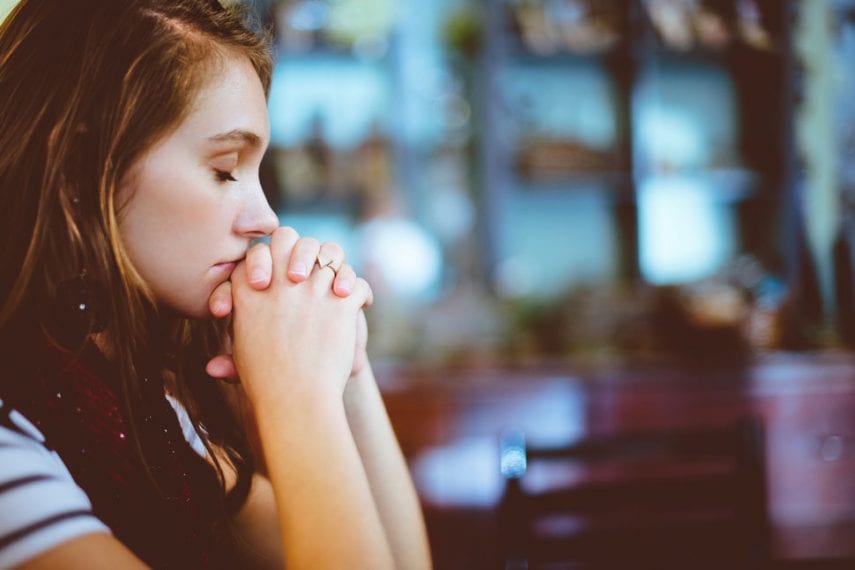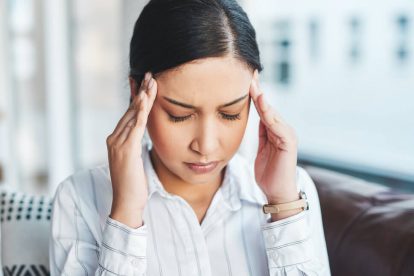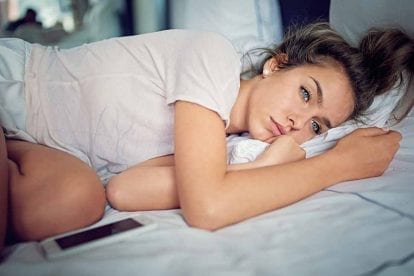How Anxiety Medications and Co-Occurring Alcohol Abuse Create a Dangerous Combination

Anxiety medications can treat anxiety disorders safely, but they can become dangerous when combined with alcohol abuse. Alcohol and benzodiazepines shouldn’t mix because together they can impact the body and delay recovery. Alcohol and SSRIs are a volatile combination that can also have adverse effects. The social benefits of staying sober outweigh the cost of destroying important relationships, which is why asking for help is the best way to start your recovery.
You don’t remember the last time you felt free of fear and anxiety, content and at ease in your body and mind. When you started taking your meds, you felt a sense of freedom. For a little while, you felt as though you were no longer a prisoner. But then, that debilitating sense of dread and paralysis came creeping back. So you tried to push it away once more.
Sound familiar? Living with anxiety presents so many challenges for both those with the disorder and their loved ones—and it’s more prevalent now than ever. It is estimated that 40 million American adults suffer from anxiety disorder, living in the constant shadow of feelings like worry and fear that are constant and debilitating.
It is likely that when you were prescribed medication for your anxiety disorder, you were cautioned about combining their meds with alcohol. Maybe your doctor informed you, or you read it on the print out from your prescription, or your pharmacist brought it up when he passed over the pills. Despite these warnings, however, mixing anti-anxiety medication with too much alcohol as a form of self-medication is all too common. However, there are multiple risks to both mind and body associated with this combination—risks that anyone taking anti-anxiety meds should be aware of and take seriously.
Alcohol and Benzodiazepines: Why They Shouldn’t Mix
Benzodiazepines, such as Xanax, Ativan Valium, Klonopin, and Librium, are anxiolytic medications that are used to reduce symptoms of anxiety by having a sedative effect. They are the most commonly prescribed medications for anxiety disorders and are often the first line of pharmaceutical treatment prescribed. They work by acting on receptors for the inhibitory neurotransmitter GABA, making its transmission much more efficient. The increased efficiency of GABA results in the sedative effect, thus slowing and calming the central nervous system and effectively reducing the excitatory, panic-like symptoms of anxiety.
Alcohol acts in a similar way to GABA by mimicking, binding to its receptors, and producing the familiar sedative effect. This is the reason that anxiolytic medications are commonly used by physicians to wean patients off of alcohol and reduce symptoms of withdrawal. It also may help us understand why some people who take anxiolytics also develop an alcohol addiction. Both substances have an impact on the same neurotransmitter and have the similar physiological results. In fact, it is common for individuals to build up a tolerance to their anti-anxiety medication and then turn to alcohol as a form of self-medication, sometimes resulting in a co-occurring alcohol and benzodiazepine addiction.
When too much alcohol and anxiolytics are used in combination, however, the side effects can be dangerous. In fact, in 2010 benzodiazepines were implicated in 408,000 in emergency room visits across the United States, and 27% of these were patients who had mixed the medication with alcohol. Side effects of each substance compile together to produce impaired motor skills, memory loss or amnesia, dizziness, and dramatic mood swings. If a combined alcohol and anxiolytic overdose occurs it has the potential to result in a loss of consciousness, coma, or even death.
SSRIs and Alcohol: A Volatile Combination
Anxiolytic medication isn’t the only type of medicine used to treat anxiety disorders. Antidepressants, like Prozac, Paxil, Celexa, and Zoloft, known as selective serotonin uptake inhibitors (SSRIs) are commonly prescribed to people suffering from anxiety. These drugs work differently than anxiolytics by making the brain’s supply of serotonin more available, thus elevating one’s mood.
Because they work differently in the brain, they also interact with alcohol differently. While the mechanisms aren’t entirely understood by medical professionals, it has been shown that mixing alcohol and SSRIs can lower your alcohol tolerance and cause memory loss. While it may be true that the combination can feel good in the short term, over time it can actually reduce the effectiveness of the medication and increase anxiety levels. Frequent mixing of alcohol and SSRIs can also cause people to develop side effects to the drug, such as insomnia, weight gain, and nausea.
While MOAs are not commonly described for anxiety, it is important to mention that combining these anti-depressive drugs with alcohol can be a life-threatening mix resulting in a dangerous spike in blood pressure which can lead to cardiovascular problems.
The Social Benefits of Staying Sober
Of course, avoiding dangerous side effects isn’t the only reason to stay away from alcohol while receiving pharmaceutical treatment for anxiety. Because of the impact it can have on cognitive functioning and the potential memory loss that results, it can reduce the effectiveness of counseling or psychotherapy treatment. If you don’t remember the last appointment, it is certainly difficult to make progress.
Relationships can also suffer in a number of ways from alcohol use as a form of self-medication for anxiety. Your mood swings can difficult for your partner, friends, and family to bear, and can cause a great deal of worry and concern for those close to you. In some cases, it may even become too difficult for your loved ones to support you in the way you need them to.
Asking for Help
If you are combining alcohol and anxiolytic or antidepressant medication in order to manage your anxiety disorder, the prospect of treatment can be terrifying and overwhelming. That’s why a residential mental health program is often the best idea for those who find themselves in this situation. Residential programs remove the stressors of everyday life and allow you to focus fully on recovery while receiving a range of programs personalized for you, from Cognitive Behavioral Therapy to holistic therapies like yoga, massage, and meditation.
In a safe, supportive environment, you can uncover and address the cause of your anxiety disorder and free yourself from the dangerous behaviors and thought patterns that have been exacerbating your condition and begin to build a future free of the fears of today. Asking for help isn’t easy, but it is an essential first step in the recovery process.
Bridges to Recovery offers comprehensive residential treatment for people struggling with anxiety and other mental health disorders as well as co-occurring substance abuse and eating disorders. Contact us to learn more about our renowned Los Angeles programs, and how we can help you or your loved one start on the path to lasting wellness.






